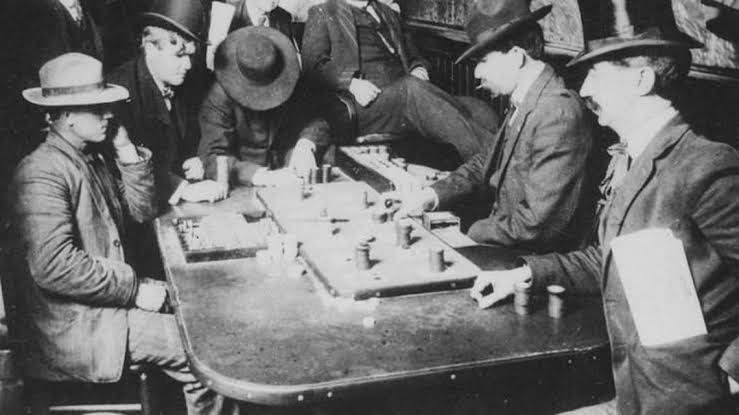Table of Contents
Casinos have always been a realm of thrill and excitement, capturing the imagination of people across the globe. The allure of casino games lies not only in the chance to win big but also in the rich histories and traditions behind each game. This article delves into the origins and evolution of some of the most famous casino games, offering a fascinating glimpse into their past.

The Origins of Roulette Casino
Roulette, often dubbed the “Queen of the Casino,” has a history that is as intriguing as the game itself. The game is believed to have originated in 18th-century France. The term “roulette” is French for “little wheel,” and it is said to have been invented by the French mathematician Blaise Pascal in his quest to create a perpetual motion machine.
However, the modern version of roulette, which includes both single and double zeros, was introduced by Frenchmen François and Louis Blanc in the mid-19th century. They simplified the game by introducing a single zero version in Monte Carlo, making it more appealing to the European aristocracy. Today, roulette is a staple in casinos worldwide, with European and American versions being the most popular.
Blackjack: From Vingt-et-Un to 21
Blackjack, also known as 21, has a history that traces back to the French game “Vingt-et-Un,” which translates to “Twenty-One.” This game gained popularity in French casinos around the 1700s. The primary objective was similar to modern blackjack: to reach a hand value of 21 without exceeding it.
Blackjack’s journey to America brought about several modifications. In an attempt to entice players, casinos offered a bonus payout for hands featuring an ace of spades and a black jack (either of spades or clubs). This bonus led to the game being called “Blackjack.” Although the bonus was eventually discontinued, the name stuck, and blackjack became one of the most widely played casino games in the world.
Poker: The American Classic
Poker’s origins are somewhat murky, with several theories suggesting it evolved from various games played in Europe and Persia. However, the game as we know it today began to take shape in the early 19th century in the United States.
Poker was first played in New Orleans, where French settlers popularized the game. It was initially played with a 20-card deck and four players who bet on which hand was the best. The game evolved as it spread along the Mississippi River on steamboats, eventually adopting a 52-card deck and introducing the concept of the flush.
The Wild West era significantly contributed to poker’s mythology, with saloons and high-stakes games becoming part of American folklore. In the 20th century, poker’s popularity soared with the advent of the World Series of Poker (WSOP) in 1970, cementing its status as a casino staple.
Baccarat: The Game of Nobles
Baccarat, a game often associated with high rollers and James Bond, has a history rooted in European nobility. The game is believed to have originated in Italy during the 15th century, with the name “baccarat” meaning “zero” in Italian. This refers to the game’s unique scoring system where face cards and tens have a value of zero.
Baccarat was introduced to France in the late 15th century, where it became a favorite among the French aristocracy. The game evolved into two main versions: Chemin de Fer and Punto Banco. Chemin de Fer became popular in French casinos, while Punto Banco made its way to American shores and became known as “American Baccarat.”
Today, baccarat is celebrated for its simplicity and low house edge, making it a favorite among both seasoned gamblers and newcomers.
The Colorful History of Slot Machines
Slot machines, or “one-armed bandits,” have a history that dates back to the late 19th century. The first mechanical slot machine, the Liberty Bell, was invented by Charles Fey in 1895 in San Francisco. The machine featured three spinning reels with five symbols: hearts, diamonds, spades, horseshoes, and the Liberty Bell. A combination of three Liberty Bells resulted in the highest payout, giving the machine its name.
The success of the Liberty Bell spawned numerous imitations, and by the early 20th century, slot machines were a common sight in bars and saloons. The introduction of fruit symbols, such as cherries and lemons, led to the nickname “fruit machines.”
The 1960s saw the advent of electromechanical slot machines, and by the 1970s, video slots emerged, revolutionizing the industry. Today, digital technology continues to evolve slot machines, incorporating advanced graphics and interactive features.
Conclusion
The rich histories of casino games add an extra layer of excitement for players, connecting them to a long lineage of entertainment and chance. Whether it’s the strategic depth of blackjack, the elegant simplicity of baccarat, or the spinning thrill of the roulette wheel, each game carries a unique story that continues to captivate and entertain. As casinos evolve with technology and trends, the timeless appeal of these classic games remains, inviting new generations to try their luck and become part of their storied past.

